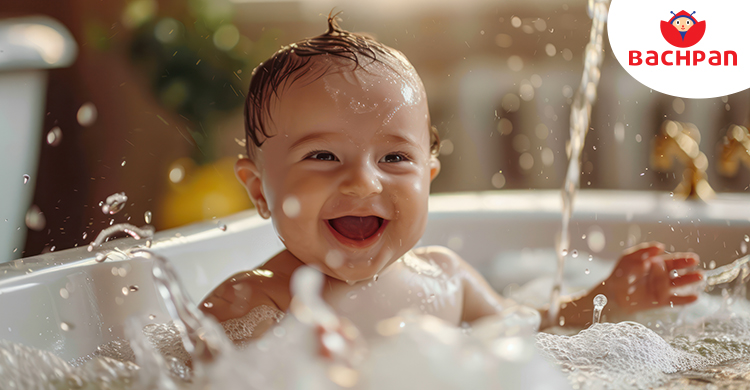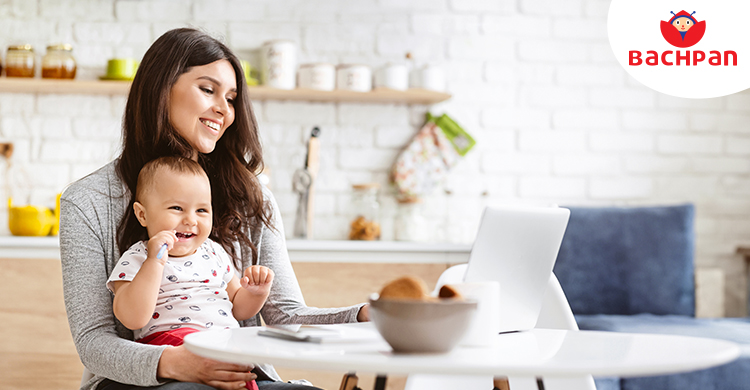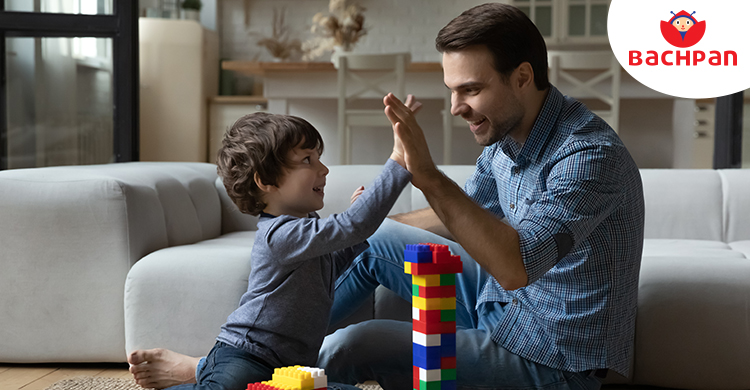Powerful Baby Safety Tips at Home for New Parents

Are you a new parent looking for baby safety tips at home? If so, you’re in the correct place! Many parents stay cautious and try their best to keep the little ones safe from every possible risk. Yet, with each new stage of development, new risks also emerge. We are here to assist you with keeping your infant safe at home and preparing for potential emergencies.
Why Baby Safety at Home Matters
Your baby feels safest at home. Hence, it becomes important to keep the home risk-free. Neglecting home safety can have serious consequences for the infant, including choking, injuries, or even fatal accidents. Following safety measure tips, along with supervision, can prevent such accidents to a great extent.
Essential Baby Safety Tips at Home
Now you know why your baby’s safety is important at home. So, let’s go through some of the essential baby safety tips at home. These are as follows:
Living Room Safety
Steer clear of polished floors, and it is better to have matted floors as it is anti-slippery. In order to avoid slips and falls, non-slip mats are also helpful. Corner guards should be used to protect furniture with sharp edges, like side tables. If you reside in a high-rise building, make sure that every window and door is closed.
Kitchen Precautions
Keep sharp objects such as knives and scissors in a safe space where the baby cannot reach. Lock cabinets and drawers that contain plastic bags or cleaning products, as babies love to open the drawers. Use stove knob covers to keep babies from turning them on.
Bathroom Safety Considerations
Toilet lids should be locked for hygienic reasons as well as to keep infants from drowning. Babies like to explore everything, so keep shampoos, soaps, and cleaners out of their reach. To prevent the infant from slipping and falling, the bathroom floors should be dry and clean.
Bedroom Safety for Infants
Maintain a comfortable room temperature and ensure that there is proper ventilation. Babies should always be placed on their backs on flat, firm surfaces, such as crib mattresses. Place small bolsters around the crib’s edges. Avoid placing too many pillows or toys in the crib to prevent suffocation risks.
(Also Read, Reasons Why Your Newborn Isn’t Sleeping at Night)
10 Guidelines for Keeping Babies Safe at Home
Here are 10 guidelines for every parents to keeping your babies safe at home:-
1. Always supervise your baby: Whether you are on a phone call, cooking in the kitchen, or doing any other work, don’t take your eyes off your baby.
2. Practice safe sleep habits: Avoid placing toys or pillows around the crib, and always ensure your baby sleeps on their back.
3. Put hot items and liquids away: It is best to place hot items, such as pots or liquids, higher up so the infant can’t reach them.
4. Water level caution: Exercise caution when adding water to your infant’s bathtub. Ensure the water level is right for the baby.
5. Store medicines in a safe location: Make sure the medications are out of reach for your growing child, as they can swallow them.
6. Use caution on slippery floors: To avoid mishaps, ensure that you walk gently on the slippery surfaces while holding the baby, particularly in the bathroom and kitchen.
7. Prohibit strangers’ entry: Position motion-activated lights close to points of entrance to discourage unwanted entry and provide nighttime illumination for guests.
8. Restrict the kitchen area while cooking: The kitchen contains sharp objects, hot utensils, and boiling pots, so you should keep your baby in a safe zone while cooking is in progress.
9. Watch out for pets: Despite their friendliness, pets can also be unpredictable. If you detect warning signs of discomfort or aggression in the pet, maintain a safe distance between your baby and them.
10. Say no to climbing the furniture: The toddler could trip or fall if they are climbing on furniture. Make sure that they do not climb on shelves and furniture.
(Also Read, Natural Remedies to Relieve Baby Vaccination Pain at Home)
Newborn Safety Checklist: Must-Have Essentials
For any parent, welcoming their little bundle of joy is the most precious experience. But a lot of responsibility goes along with it. Now let’s examine the newborn safety checklist.
Baby Proofing Your Home
Maintain a germ-free and tidy home, particularly in the proximity of your newborn. The baby’s mattress should be firm; avoid having loose sides. Make sure to use a baby bath tub and never leave them unattended while bathing them. To keep an eye on your little one from a distance, you can install a baby monitor in the bedroom and living room.
Electrical and Outlet Safety
Unplug any devices that are not in use to protect the baby from electrical injuries. Avoid positioning the crib close to outlets, such as plug points, heaters, and wires, as your infant may soon roll over or stretch toward adjacent walls. If you discover any broken cords or old wires, fix them right away.
Furniture Safety
Purchasing high-quality modular furniture for the baby provides better stability and strength. Use straps to fasten bulky items to the wall, such as dressers and bookshelves. Use child safety locks for cabinets and drawers.
(Also Read, When can I take my Newborn Baby Outside?)
Home Safety for Infants and Toddlers: What Parents Should Know
A growing baby is naturally curious and can grasp onto nearly anything that catches their interest. Hence, it becomes important for parents to follow home safety for infants and toddlers. Here are the following areas that parents should know about:
Emergency Preparedness Steps
Have a first aid kit that is accessible and stocked for babies. Acquire knowledge of infant and child CPR. Assemble a baby’s go-bag with blankets, clothing, baby medicine, and feeding bottles.
Creating an Emergency Contact List
A child’s safety and well-being are solely reliant on adults. So it is your responsibility to have contact details so that everyone in the family knows who to ring and when. Place vital contacts on speed dial—emergency services, hospital, and trusted members of the family.
Teaching Safety Basics
Children are intelligent enough to understand fundamental safety precautions. By saying things like, “Come to mumma or daddy for help,” you can encourage your child to come to you when they need assistance. Use terms like “Hot hurts” or “No touch” to convey in simple language the need to avoid hot things and electrical equipment.
(Also Read, How to Hold a Newborn Baby Safely?)
Conclusion
Following baby safety tips at home creates a safe and secure place for your little one where they can freely grow, play, and enjoy. As a parent, you will also be at ease and feel prepared for every situation that may occur in the future. Children who are taught safety techniques are better able to defend themselves. At Bachpan, we make sure that the children are taught about basic safety methods. To learn more about the safety measures, visit us at https://www.bachpanglobal.com/blog/teach-basic-safety-measures-kids/






